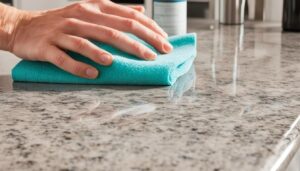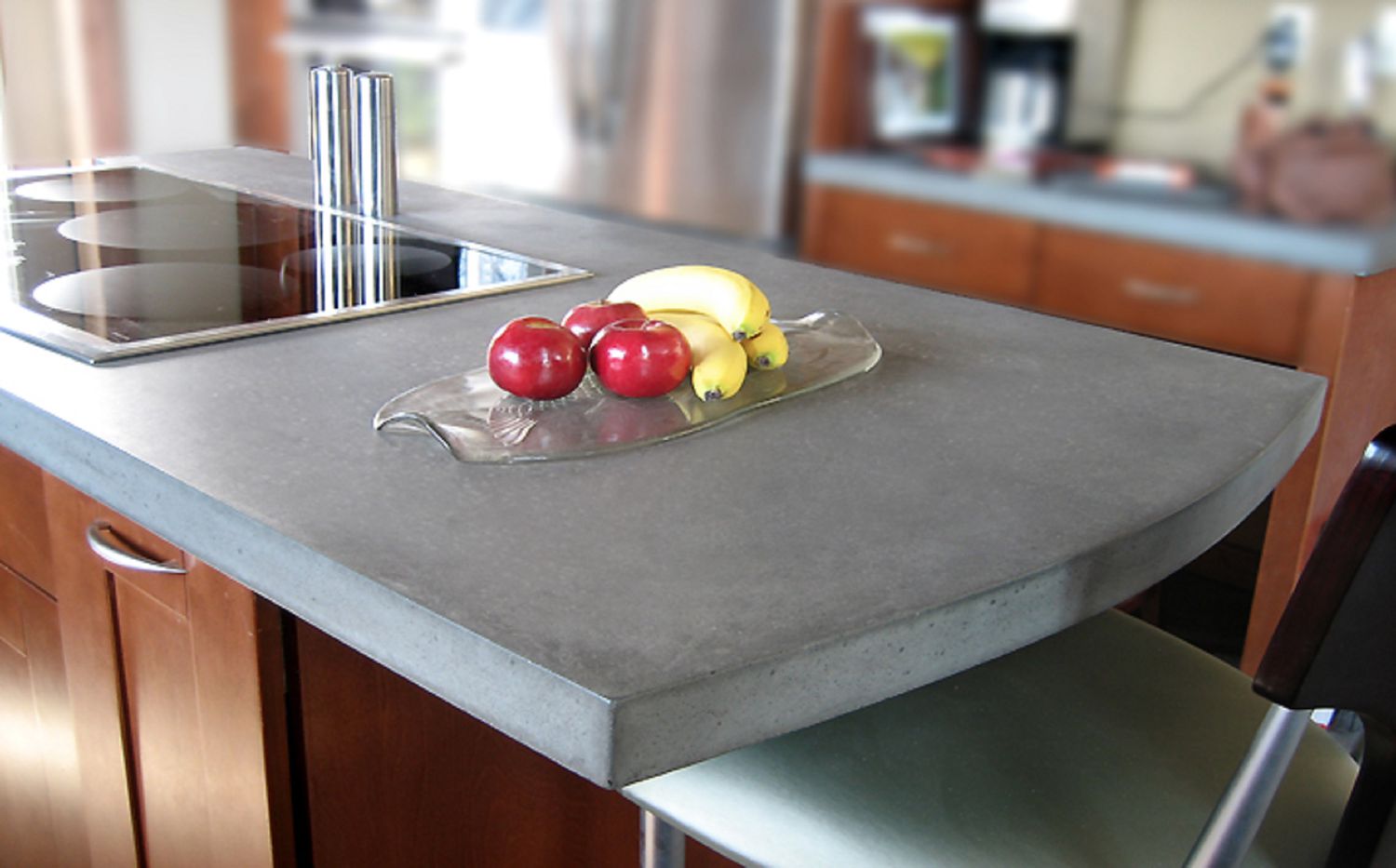Mar 19, 2025
The Ultimate Guide to Granite or Stone Countertop Cleaning: Tips and Techniques
Granite and stone countertops add a touch of luxury and elegance to any kitchen or bathroom. Their durability and timeless beauty make them a popular choice for homeowners. However, to maintain their shine and prolong their lifespan, proper cleaning and maintenance are essential. Understanding the right cleaning techniques can prevent damage, stains, and dullness, ensuring your countertops remain as stunning as the day they were installed.
Understanding Your Stone Countertop
 Before diving into cleaning methods, it’s important to recognize that not all stone countertops are the same. Granite, marble, quartz, and other natural stones have different properties, meaning they require specific care. While granite is highly durable and resistant to heat, it is still porous and can absorb liquids if not properly sealed. Marble, on the other hand, is softer and more prone to staining and scratching. Knowing the characteristics of your stone countertop will help you choose the right cleaning methods and avoid potential damage.
Before diving into cleaning methods, it’s important to recognize that not all stone countertops are the same. Granite, marble, quartz, and other natural stones have different properties, meaning they require specific care. While granite is highly durable and resistant to heat, it is still porous and can absorb liquids if not properly sealed. Marble, on the other hand, is softer and more prone to staining and scratching. Knowing the characteristics of your stone countertop will help you choose the right cleaning methods and avoid potential damage.
Daily Cleaning Practices
Regular cleaning is key to maintaining the appearance and longevity of your stone countertop. The best approach is to use a mild dish soap mixed with warm water and a soft cloth or sponge. Avoid harsh chemicals, such as bleach or ammonia, as these can break down the sealant and cause the stone to become dull over time. After wiping down the surface, use a dry microfiber cloth to remove any excess moisture, preventing water spots and streaks.
If your countertop sees heavy use, a pH-balanced stone cleaner can be an excellent option. These specially formulated cleaners help remove dirt and grease without compromising the integrity of the stone. It’s also important to clean up spills immediately, as acidic substances like wine, citrus juices, and vinegar can etch the surface and cause permanent damage.
Tackling Stains and Tough Spots
Despite your best efforts, stains and stubborn spots may still appear on your countertop. The method of removal depends on the type of stain. For organic stains caused by food, coffee, or tea, a mixture of baking soda and water can be applied as a paste. Let it sit for a few hours before gently wiping it away. Oil-based stains, such as grease or cooking oil, may require a combination of baking soda and hydrogen peroxide.
For deep stains, a poultice can be used to draw out the discoloration. This involves mixing a cleaning agent (such as hydrogen peroxide) with an absorbent material (like flour or baking soda) to create a thick paste. Spread it over the stain, cover it with plastic wrap, and leave it for 24 hours before wiping it clean. Always test a small area before applying any homemade solution to ensure it does not affect the finish of your countertop.
Proper Sealing for Long-Term Protection
One of the most important aspects of stone countertop maintenance is sealing. Natural stone is porous, meaning it can absorb liquids and become prone to stains. A high-quality sealant helps create a protective barrier, preventing moisture and spills from penetrating the surface.
To determine whether your countertop needs sealing, perform a simple water test. Pour a small amount of water onto the surface and wait for about 15 minutes. If the water forms beads, your countertop is still well-sealed. If it starts to absorb into the stone, it’s time for a resealing treatment. Most granite countertops should be sealed once or twice a year, while marble and lighter-colored stones may require more frequent applications.
Applying a sealant is straightforward. Clean the surface thoroughly, then apply the sealant using a soft cloth or sponge. Let it sit for the recommended time before wiping away any excess. Always follow the manufacturer’s instructions to ensure maximum protection.
Avoiding Common Mistakes
Certain cleaning habits can do more harm than good when it comes to stone countertops. Using abrasive pads or harsh scrubbers can scratch the surface, diminishing its shine. Acidic cleaners, such as vinegar or lemon-based solutions, should be avoided, as they can break down the sealant and cause etching.
Placing hot pans directly on the countertop can also lead to thermal shock, potentially causing cracks. Although granite and stone are heat-resistant, it’s always best to use trivets or hot pads for extra protection. Additionally, never use generic household cleaners unless they are specifically labeled safe for stone surfaces, as some chemicals can cause long-term damage.

Maintaining a Polished Look
To keep your countertop looking pristine, occasional polishing can help enhance its natural shine. A granite-safe polish can be applied to restore luster and protect against smudges. However, overuse of polishes can lead to buildup, so they should only be used occasionally rather than as part of daily cleaning.
For a natural shine boost, a simple solution of water and isopropyl alcohol in equal parts can be sprayed on the surface and wiped down with a microfiber cloth. This not only adds shine but also disinfects the area without harming the stone.
More Details